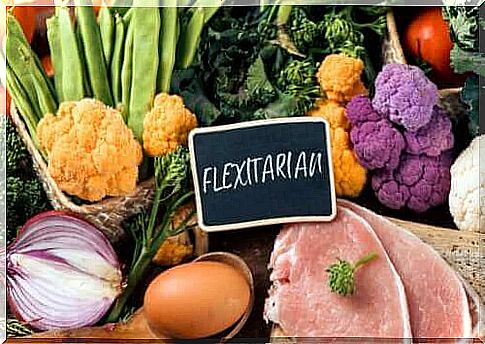Flexitarianism- Discover The Benefits Of This Lifestyle

Today we want to tell you all about the health benefits of a flexitarian lifestyle. This term refers to a form of nutrition that involves eating mainly vegetables and plant-based products in their unprocessed form and restricting animal-based and highly modified foods.
Sometimes flexitarians add foods like seafood or lean meats and free-range eggs to their diet.
Find out more today and start a healthy lifestyle.
Flexitarianism – discover the benefits of this style of eating
Have you heard of flexitarianism? While the vegetarian and vegan lifestyle has permeated society quite strongly, there is an increasing number of people who can be considered flexitarians. However, do you know the term?
The term is fairly new to the world of healthy eating. This particularly applies to flexibility in a healthy and balanced diet. So maybe you already belong to this group of people without even knowing it.
Find out more about it in the article below.
What is flexitarianism?
Flexitarians are people who base their eating patterns on a vegetarian diet, but also rarely eat meat, fish and seafood. However, they usually choose organic, free-range, rather than factory-farmed animal products.
As the number of people on a vegetarian diet around the world continues to grow, more and more people are starting to take an interest in reducing meat consumption. Some people who begin this lifestyle start out with flexitarianism first. Thus, they gradually stop eating meat in order to completely eliminate it in the future.
Flexitarianism, however, is not a subset of the vegetarian diet. Vegetarians and vegans have sound ethical or environmental reasons why they do not consume animal flesh under any circumstances. For flexitarians, its consumption is not an offense in their lifestyle and therefore they do not feel guilty about it.
Flexitarianism – Food Options

Fleksitarianism is not a subgroup of vegetarianism, but rather a specific lifestyle.
What are the advantages of flexitarianism?
There is a great deal of scientific research to suggest that basing your nutrition on plants, and primarily vegetables, provides a number of health benefits. Of course, this should be done in the context of a nutritionally balanced and personalized diet .
Below we describe in detail the positive effects of flexitarianism on the body.
It prevents the appearance of cardiovascular diseases
Cardiovascular disease is a serious global public health problem. In fact, it is the leading cause of death in industrialized countries. This is a consequence of the build-up of saturated fat and cholesterol in the arteries – the nutrients found in red meat and butter, and in foods that contain trans fats.
Scientific evidence suggests that plant-based eating patterns such as flexitarianism help people avoid these dangerous pathologies.
They are beneficial not only because they limit the intake of unhealthy fats, but also because they promote the consumption of antioxidants and anti-inflammatory compounds that are able to improve the health of blood vessels and heart.
Flexitarianism works against obesity and diabetes
Obesity and type 2 diabetes are metabolic pathologies whose risk factor is an inadequate diet. According to the data contained in the article “Fleksitarianism: A review of the literature”, this style of eating is associated with a lower risk of developing these diseases.
In fact, the above study showed that body mass index (BMI) was within normal limits in the vegetarian and flexitarian groups, compared to the omnivores. The appropriate BMI index is a factor that protects against chronic pathologies of important organs – heart, liver and kidneys.
It prevents the appearance of intestinal pathologies
Diseases such as Crohn’s and rectal or colon cancer are associated with excessive consumption of red meat, processed sausages, and high-fat foods. Therefore, this type of diet, based on fresh vegetables, prevents this type of disease.
In addition, eating natural foods also keeps other parts of your digestive system healthy. These elements include, for example, the balance of the intestinal microflora. In this way, it reduces the likelihood of intestinal candidiasis and the formation of diverticula, which are bags or dilations that form in the intestinal wall and can become inflamed.
It prevents kidney diseases and gallstone disease
Ingestion of excess protein, especially of animal origin, excretes calcium, uric acid, and oxalic acid in the urine. These substances are unfortunately the basic ingredients in the formation of kidney stones.
In addition, they are also associated with the regular consumption of unhealthy cholesterol and fat, typical of meat diets. Therefore, reducing meat consumption can protect your kidney health.

The appearance of kidney stones is associated with a high consumption of animal protein.
Flexitarianism: Concluding Remarks
As you can see, there are many benefits to implementing flexitarianism. Because this diet is based on plant-based foods, it is rich in fiber, anti-inflammatory substances and antioxidants.
However, it should be noted that, as with any diet, it is important to achieve the right balance of nutrients, minerals and adjust the details to each person’s individual lifestyle.
Therefore, if you want to start this type of diet, you should first consult a dietitian or family doctor to make a nutritional plan. This will help to avoid shortages.









